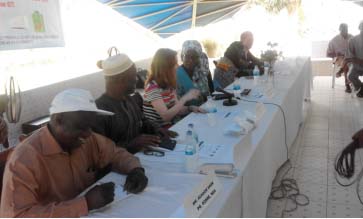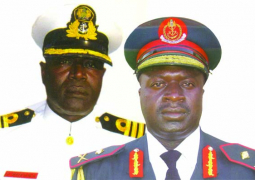
The
National Environment Agency (NEA), in collaboration with the Gambia Technical
Institute (GTTI) and United Nation Industrial Organisation (UNIDO), has
conducted a five-day training workshop on hydrocarbons and carbon dioxide for
refrigeration and air conditioning technicians.
The
training, held at GTTI, was aimed at reducing greenhouse gas emissions
associated with industrial and domestic refrigeration and air conditioning.
Speaking
on the occasion, Agi Binta Kinteh of NEA, said the importance of refrigeration
equipment to many manufacturing processes and other economic activities has led
to the general increase in its usage.
She
said this growth has led to the general increase in the quality of
refrigeration units and consumption of all classes of refrigerants including
HCFCs, a second hand equipment that is no longer allowed in developed countries
but easily finds its way in developing countries.
According
to Mrs Kinteh, the increase use of refrigeration will lead to routine equipment
updates or new installations, and owners are currently likely to favour the use
of HFCs that have very high global warning potentials.
“The
Gambia looks to minimise the use of chemicals damaging to the ozone layer, and
operate with greater energy efficiency and use chemicals with low-GWP,” she
explained.
“Therefore,
as we anticipate the adoption and use of low ODS alternatives and low-GWP
refrigerants, the interim focus needs to be on establishing and testing the
mechanisms for technology transfer.”
Jahou
S. Faal, director of GTTI, said climate change adaptation and mitigation
policies have increasingly become critical drivers of change for societies,
economies and enterprises.
The
growing importance of environmental conservation and the pressure emanating
from the agreed environmental protocols obliges each country to shift to
low-carbon, climate resilient and sustainable model of generating its energy
needs.
She
said it is therefore imperative to reflect on these goals in the training and
skills sector which are deemed to be vehicles of change and are pivotal for the
achievement of the goals.
Madam
Katinka, a representative of UNIDO, told the participants that they also have
the biggest responsibility to towards the environment.



